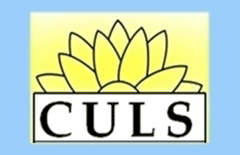Abstract
“Time is an illusion, lunchtime doubly so” said Ford Prefect, in The Hitchhikers Guide to the Galaxy by Douglas Adams (2005). Lunch (and time) flies! However, thinking about time can be heavy. It flies, slips away, passes, heals, and is lost, found, made, wasted, spent, used, counted and killed. Still it continues, and each one of us must figure out what to do with it—an entire dimension. Few would argue that it is important to use time well, but we often take for granted our largely untrained, yet skillful, accomplishment of that goal. Time is important, critical in fact, yet we seldom spend it honing our management talents. If we do decide to take the time, there exists no lack of literature to help. What does that literature tell us? This study will review book literature on time management in libraries and present a time study that is the result of the author’s research on the topic, providing recommendations for future studies.
Creative Commons License

This work is licensed under a Creative Commons Attribution-Noncommercial-No Derivative Works 4.0 License.
Recommended Citation
McCune, Morgan
(2011)
"Where Did My Time Go? Time Management in Libraries,"
Kansas Library Association College and University Libraries Section Proceedings:
Vol. 1:
No.
1.
https://doi.org/10.4148/culs.v1i0.1362
References
Adams, Douglas. (2005). The hitchhiker’s guide to the galaxy. New York: Ballantine Books.
Johnson, Sean. (c2008-2010). Bubble Timer. [Computer software]. http://bubbletimer.com
Burkett, Jack. (1976). The time factor in library and information management. Journal of Librarianship and Information Science, 8(1), 21-32.
http://dx.doi.org/10.1177/096100067600800102
Cochran, J. Wesley. (1992). Time management handbook for librarians. New York: Greenwood Press.
Gothberg, Helen M., & Riggs, Donald E. (1986). Time management study in academic libraries. Final report. Washington, D.C.: Council on Library Resources.
Hines, Samantha. (2010). Productivity for librarians: How to get more done in less time. Oxford: Chandos Publishing.
Oppenheim, Charles. (1998). [Rev. of Getting results with time management by Ailsa Masterton]. Education for Information, 16(2), 164-165.
Paquette, Mindy Robinson. (1992). [Rev. of Time management handbook for librarians by J. Wesley Cochran]. Bulletin of the Medical Library Association, 80(4), 391-392
Rice-Lively, Mary Lynn, & Racine, J. Drew. (1997). The role of academic librarians in the era of information technology. Journal of Academic Librarianship, 23(1), 31-41.
http://dx.doi.org/10.1016/S0099-1333(97)90069-0
Siess, Judith A. (2002). Time management, planning, and prioritization for librarians. Lanham, Md.: Scarecrow Press.
Silber, Lee. (1998). Time Management for the Creative Person. New York: Three Rivers Press.
Thomas, P. A. & Ward, Valerie A. (1973). Where the time goes. London: Aslib.


